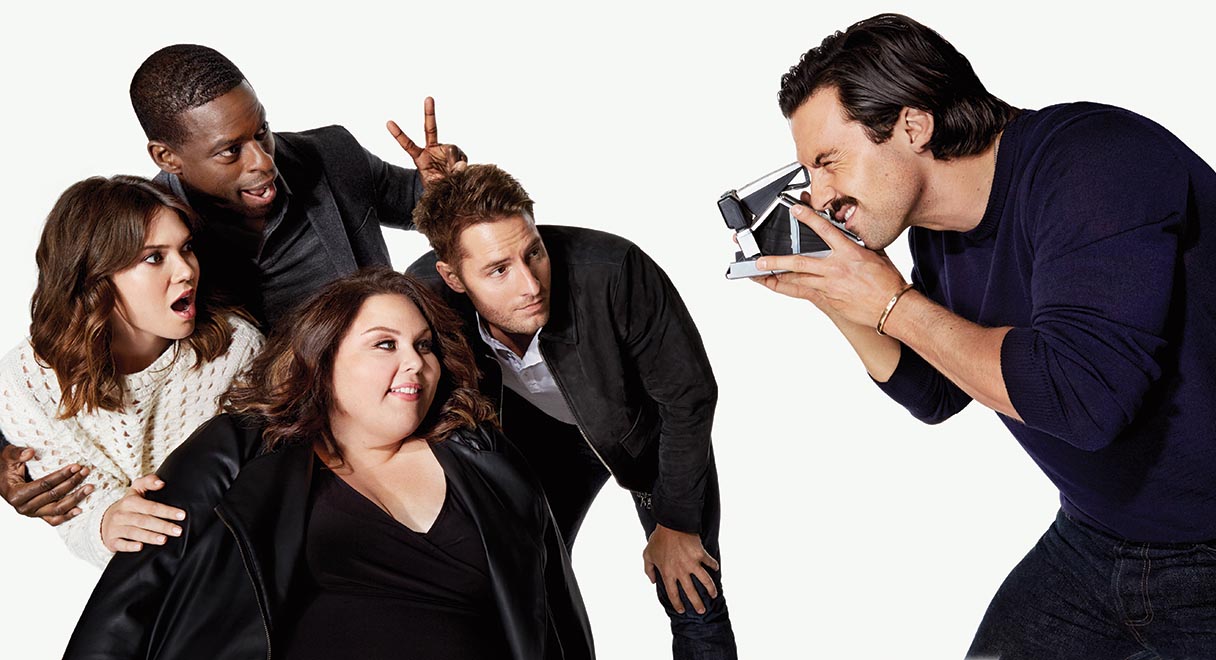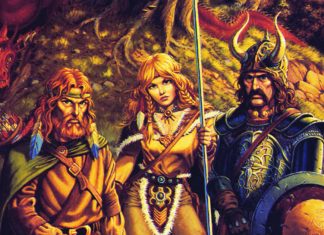This Is Me And You And We And Everything
This is Us (Tuesdays at 9/8 CST on NBC) is in some ways a stock family drama, and plenty of what you’d expect from such a thing in 2018. There are a lot of hurt feelings, a lot of misunderstandings, a lot of painful memories, a great deal of ethnic and sexual diversity, and in some way every episode is A Very Special Episode. The closest analogy I can think of is Family, which ran on ABC from 1976 to 1980.
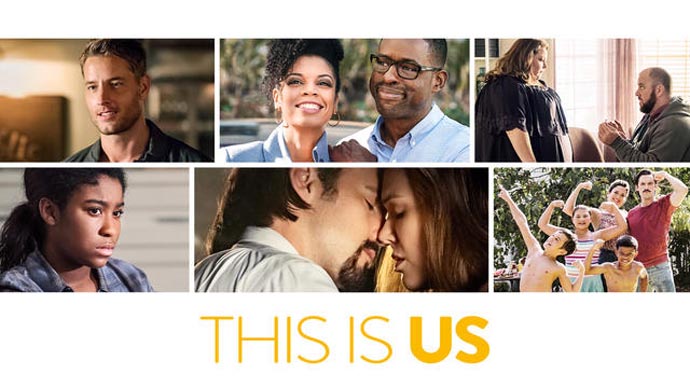
I haven’t watched Family in 30 years. All I remember is when we watched it back in 1979, I had a crush on Kristy McNichol. But I’m pretty sure there is a significant structural difference to This Is Us and most family dramas, though I confess it might just be a matter of degree.
This Is Us Is Lost
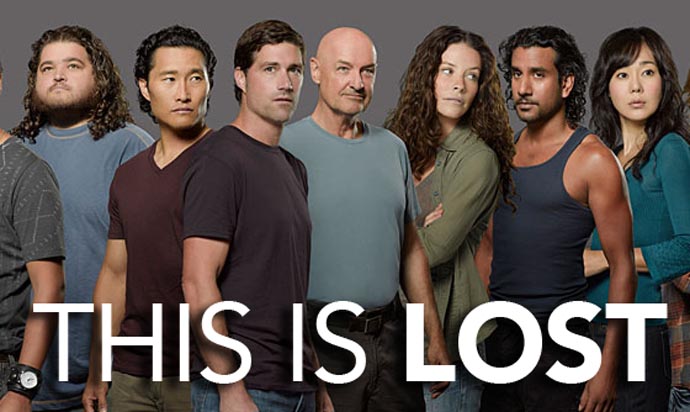
Plain and simple, it’s a mystery box show. Much like Lost, something happens in almost every episode to set up a new mystery, close out an old mystery, or move the resolution to a given mystery a little further along. Unlike Lost, instead of smoke monsters and the Dharma Initiative, it’s hurt feelings and painful secrets that make up This Is Us’s mysteries. Instead of finding out everybody is dead and just hanging out in purgatory, or that Jerry Bentham was what they spent an entire season calling John Locke for no reason, the resolutions on This Is Us are apologies, admissions of guilty secrets, and the seeking of forgiveness.
When revising this article ahead of publication, I found out there’s a very good reason this show reminded me so much of Lost. Series creator Dan Fogelman actually pitched it as a dramedy version of Lost. Although it’s less a dramedy than a full on drama, I have to say he managed to apply the Lost forumula to a family drama seamlessly, and actually improved on the execution.
Warning! Spoilers Ahead!
Early on in the first season, you find out that the father, Jack Pearson (played by Milo Ventimiglia), is no longer a part of that family. Is he dead? Did they get divorced? Looks like divorce might be the answer, but no: he’s dead. But how did he die? We don’t get the payoff for that until season 2. Later on we find out that Kate Pearson (played by Chrissy Metz), Jack’s morbidly obese daughter, blames herself for her father’s death, but why?
Eventually, we figure that out, and there are lots of tears along the way. But the emotional mystery of it is strong, and the show is structured so it’s easier to get hooked into it than you might think.
The Day The Emotional Universe Changed
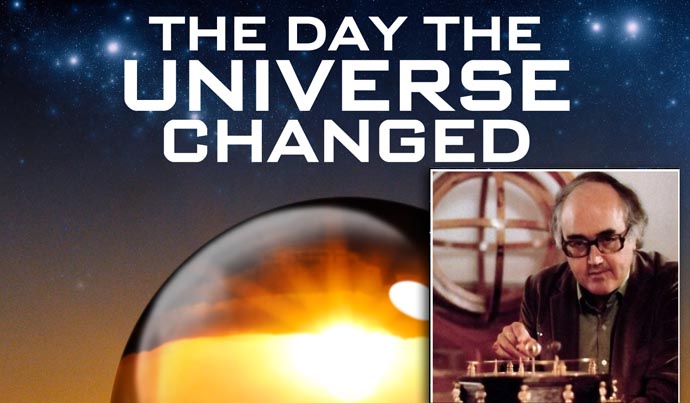
I was a huge fan of James Burke’s The Day The Universe Changed (a BBC documentary later aired on PBS in the states). In it, he would illustrate how one scientific discovery or innovation lead to another, which then impacted a third, and eventually ended at your television or home computer. It made the point that, in science, everything is connected.
The interconnectedness of things is a big deal on This is Us, and I’d argue that is often the theme of mystery box shows, like Lost. Only This Is Us pulls it off much better, from a writing and plotting standpoint, than Lost ever did. While flashbacks and flash-forwards happen seamlessly and without any indication or sign posts, they illustrate perfectly how one event leads to another and how one person’s life touches another, often without them knowing.
In a lot of ways, This Is Us is The Day The Universe Changed, only with hurt feelings instead of science.
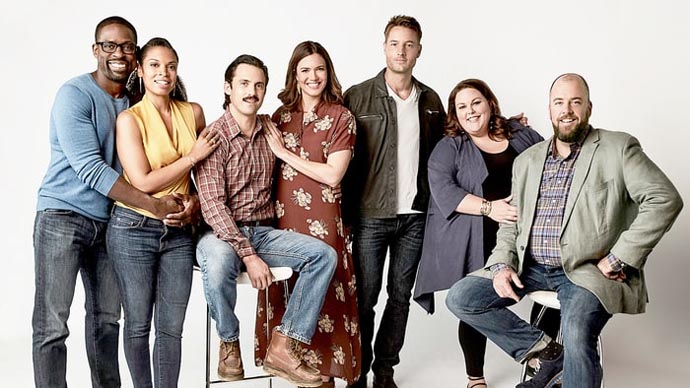
Honestly? The Punisher or Altered Carbon or The Americans are much more my cup of tea when it comes to television watching. Family comedies often work for me, but family dramas generally don’t engage me. Even now, it’s not the broken emotional states and hurt feelings of the characters on This Is Us that engage me, it’s the structure of the story telling. Your mileage may vary, but to me, it’s a masters course on using interconnectedness to engage the viewer. It’s also got a lot to teach aspiring writers about using the mystery box storytelling strategy to build a compelling narrative that actually pays off.
You Feel Like They Know What They Are Doing
Binge watching the entire first season and all the second season currently available, I’m left with a sense of a story created whole and complete from the outset. Such stories almost never are, even if workshopped before writing even starts. But the creators and writers of This Is Us know when to take a minor reference from an earlier show and expand it meaningfully, or create a minor reference early on when they know they are going to have a larger arc using it later. The patriarch’s favorite tree is the primary example I’m thinking of, but there are many others. If you decide to watch it for yourself, keep an eye out for them. I’m going to have to rewatch just to catch ones I missed originally.
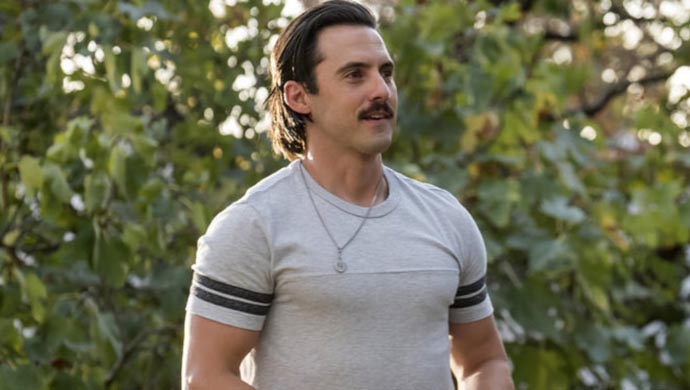
There is never a moment, unlike Lost, where it suddenly seems to me the writers had no idea where they were going with this when they started. There’s no moment where it seems to me they clearly don’t have any idea how to stick the landing. I’ve found the show worth watching for that alone.
It’s Still a Hyper-Emotional Family Drama Full of Painful Memories And Tears
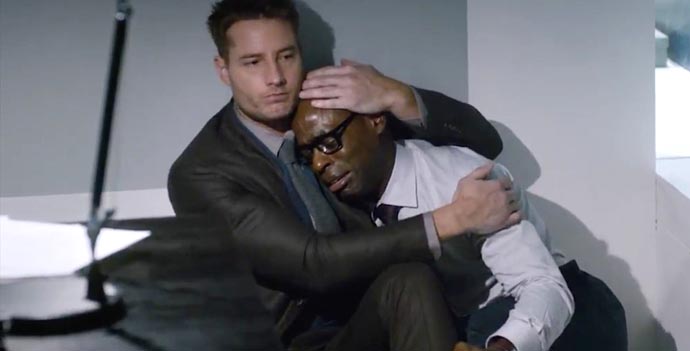
Hyper-emotional family driven dramas may not be your cup of tea. And I get that. They usually aren’t mine. And there’s nothing different about the hyper-emotional aspect of the show. It’s the story structure and the writing that I’m in love with. It’s so well put together, I see why it has become such a huge hit. And I plan to keep watching it.
Despite constantly jumping backwards and forwards in time, the narrative is clear—as long as it means to be. Sometimes it’s not, but that’s on purpose. Again, it is mystery box story telling. But it all comes clear in the end, and in usually satisfying ways. The episode leading up to the start of the house fire that ended up causing a Traumatic Life Change was one of those episodes, and an obvious one when you look back at it. Still, very effective.
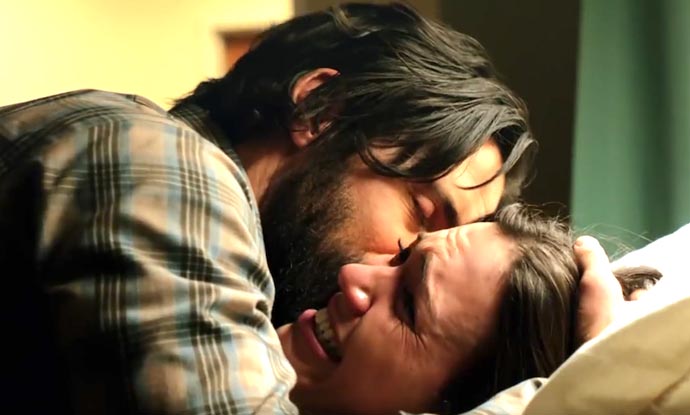
This Is Us is great episodic television. If you like family dramas or if you like mystery box television full of time-jumping narratives, this show is for you. If you like them both you have now achieved Nirvana. Good job!
If you are skeptical, my suggestion is to watch the pilot episode. If you feel engaged, or at least you don’t feel like clawing out your eyeballs because of all the feels, then watch the next few episodes. If you aren’t engaged in it by episode 4, give up. It’s not for you. Unless you want to have something to watch with your wife. She’ll probably like it, and then as she gets the feels you can go post comments on FilmGoblin.com on your phone. Either way, you win.
One last word on This Is Us as a mystery box: I’m not the only person who thinks so. Vulture has made exactly the same point, and I didn’t realize it until looking for links for this article. They even make the same Lost comparison. Great minds think alike, I suppose!
But I can’t find anybody else who made the The Day The Universe Changed comparison. That was all me!
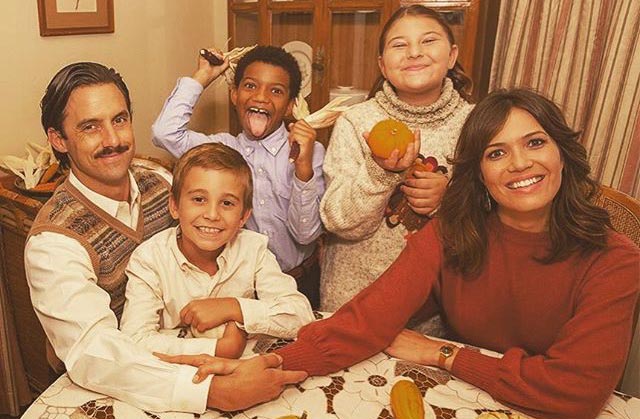
This Is Us was created by Dan Fogelman (who also created the under-appreciated ABC musical comedy series Galavant, and wrote scripts for Disney’s Tangled and Cars!). It stars Mandy Moore (there’s that Tangled connection) as series matriarch Rebecca Pearson, Milo Ventimiglia as series patriarch Jack Pearson, Sterling K. Brown as the adult Randall Pearson, Jack and Rebecca’s adopted son, Chrissy Metz as their morbidly obese adult daughter, Kate Pearson, Justin Hartley as their adult actor son, Kevin Pearson (also: The Manny!), and many, many more actors playing many more highly emotional people just trying to navigate their way through life.
This Is Us is currently on its second season and airs Tuesday nights on the NBC television network at 9/8 CST. Season 1 (and what’s aired so far of season 2) is available to binge on Hulu or almost anywhere you can get NBC on demand.
End of line.
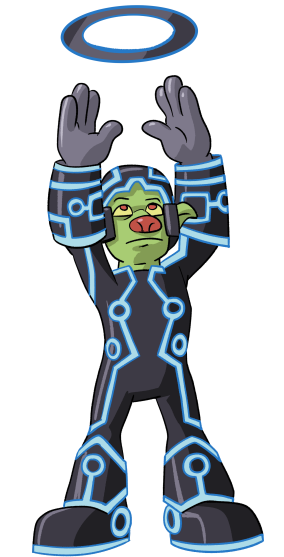
[amazon_link asins=’B000GFRI68,B01LTHO4KO,B07624YKBD,B000FIMG68,B003U53Q9Y,0316117064,B001RCL5SQ,B002EEZ20S,B0773SMZRP,B0719LHD79′ template=’ProductCarousel’ store=’filmgoblin-20′ marketplace=’US’ link_id=’8e980f58-1668-11e8-80c7-879198b1da07′]

